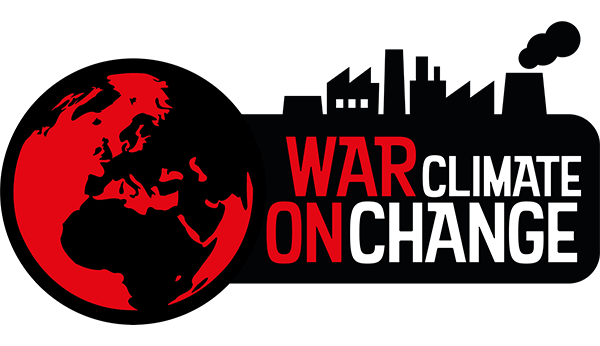Our Manifesto
Background
Covid-19 provides a stark warning about the consequences of unpreparedness. By the time the pandemic is finally over millions will have died. It is certain that if the world had been better prepared and if governments had reacted faster to the outbreak the vast majority of these deaths Could have been avoided.
Hopefully the right lessons will be learned and our defences against future pandemics strengthened. However the current understandable preoccupation with Covid-19 must not distract attention from an even greater challenge. Climate change does not merely threaten the lives of millions of people. If unchecked it is an existential threat to the human species.
The proliferation and inventiveness of human beings, and the extraordinary control over their own lives which this very recently arrived species enjoys, has only been made possible by the climate stability of the last few thousand years.
Continuation of this stability cannot be taken for granted. Unless the relentless increase in greenhouse gas concentrations in the atmosphere, now at their highest level for three million years, is halted at once climate change will be irreversible. To prevent this, action must be taken on a scale never previously contemplated.
The nature of this threat has been known for thirty years yet the world remains bewilderingly complacent. Even the language used is misleading. “Global warming” suggests pleasant Mediterranean weather in previously cold countries, not violent storms and floods, dangerously rising water levels forcing mass migration, unbearably hot summers and severe droughts killing millions of people.
“Saving the planet” sounds like an invitation to join Sir David Attenborough on a mission to stop destruction of the rain forests. But the planet doesn’t need saving. It will survive another eight billion years regardless of how much the climate changes. It is individual species, notably our own, which are in danger. We can’t wait for a majority of people to realise their grandchildren’s lives are at risk. The time to act is now.
Atmospheric greenhouse gas concentrations won’t stabilise till net carbon emissions are cut to zero. That must happen long before 2050 – probably not later than 2035. The point at which climate change becomes irreversible is already perilously close.
Tiny glimmers of hope are appearing. Far more people are now aware of the threat. Concepts like flight shaming did not exit five years ago. Net zero targets weren’t even discussed at COP21 in 2015.
But no country which has set a net zero target yet has a credible plan for achieving it. We can’t wait any longer for technology breakthroughs to save us. Instead we must use what is available today to achieve something which has never been done before. Emissions must start to fall by at least 10% a year.
The massive economic slump which Covid-19 has triggered will bring terrible poverty, hardship and unemployment to billions of people. The silver lining to the appalling pain this will cause is a large fall in greenhouse gas emissions.
As we reflect on COP26, we must seize the opportunity which this unexpected reset of the base from which climate change is tackled offers. When the global economy is rebuilt it must be on a sustainable basis, not by renewed consumption of fossil fuels, however cheap they may be.
A fundamental change of approach is needed – nothing less than a WAR ON CLIMATE CHANGE.
How to start the WOCC
The first step is for one country to make climate change the first item on the agenda of every meeting of its Parliament, Cabinet, regional and local government councils or assemblies, regardless of what these meetings have been arranged to discuss.
That will move climate change to the top of the agenda. It will be mocked by the few who still deny the science and welcomed by the many, including the vast majority of young people. Britain should be that country next year when it hosts COP26.
Broadcasters should lead every news bulletin with an item on climate change – regardless of what other stories are breaking. Channel Four might do this voluntarily. Even Sky News, after James Murdoch`s public criticism of his father`s approach to climate issues, might do it.
Schools should start every school day with a lesson on climate change – before the rest of the curriculum. Any who refuse to do so should submit their decision to a vote of their pupils, not their teachers or parents.
Universities and colleges should devote the first ten minutes of every lecture and tutorial to climate change – regardless of what course is being studies. Refuseniks should poll their students on the decision.
Business must be a partner in this process, not an opponent. Building on the work of the Carbon Disclosure Project and other initiatives which focus attention on business practices, WOCC will require all listed companies to have climate change audits to certify the carbon footprint of all their activities. These will take precedence over financial audits and report on energy use and efficiency, purchasing policy and transport usage.
The first item on the agenda of every board meeting of all listed companies should be climate change, how the company is meeting its annual carbon emissions budget and how quickly it is becoming a net zero business. The minutes of this agenda item should be published.
Regulations must be changed to promote investment in low carbon infrastructure. Land use planning approval of low carbon development projects must be almost automatic.
Then what?
Once a country, or group of countries such as the EU, does this others will follow. WOCC will move from being a voluntary individual national initiative to a global one. Sanctions can then be applied to countries which don`t join in.
In the interests of fairness, countries with very low GDP per capita and annual per capita carbon omissions of under two tonnes will be excluded until the economic growth needed to escape from poverty has occurred.
Energy, transport and the built environment are three big sources of carbon emissions. Each must lead the way to net zero by using technologies available now, even though their universal adoption will involve some disruption.
Decarbonising energy
The quick essential, though not painless, win is electricity. It`s quick because all electricity can already be generated from low carbon sources. It`s essential because electricity consumption will increase regardless of other measures.
WOCC will end the use of fossil fuels to generate electricity. Investment in unabated coal and gas fired plants will be illegal. All existing unabated coal and gas plants will shut as soon as replacement sources are built and not later than 2040.
Countries will decide their own energy mix. Those which have abundant renewable energy resources will use them. Others may follow the example of France and Sweden, the only countries ever to cut emissions from electricity generation rapidly, by investing heavily in nuclear energy.
Decarbonising transport
Surface transport on both land and sea must be completely decarbonised by 2035. The technology to do this already exists. The use of fossil fuel powered road vehicles can and must end completely by 2030.
Long haul flights will require fossil fuels for the foreseeable future though Covid-19 will permanently cut demand. The introduction of a global aviation fuel tax and a high carbon price will reduce it further. Short haul flights will be progressively replaced by rail which can already match the time of aircraft for journeys up to 800 miles. Airlines must become net zero businesses by achieving audited negative emissions to offset emissions from flights.
Decarbonising buildings
All new buildings must be constructed to rigorous internationally agreed standards to ensure maximum energy efficiency and zero carbon emissions. The use of fossil fuels to heat or cool any new buildings constructed must be made illegal. Existing buildings must phase out fossil fuel use as soon as possible.
While the current US administration absents itself from the climate debate the EU should work with China to set common building standards. Once these apply to a quarter of the world`s population and almost a third of global GDP they will be followed elsewhere voluntarily. Countries which flout these standards will face trade sanctions, including the imposition of border tax adjustments.
Finance
A Global Climate Levy (“GCL”) of 0.1% of gross turnover will apply to every company with annual turnover exceeding $5million. A GCL of 0.1% of turnover won`t damage business. If applied to the companies in the S&P 500 and the FTSE 100 alone it will raise over $14 billion a year.
A GCL Authority (“GCLA”) will allocate funds raised. To avoid conflicts of interest, GCLA members will resign from all other jobs and transfer their assets to a blind trust for the duration of their membership which will be limited to six years. They will be chosen by the first [1000] companies who commit to paying the GCL, with provisions to ensure geographical and industrial balance.
The GCLA will allocate the billions at its disposal to researching and developing low carbon technologies and to subsidising their early adoption.
Carbon pricing
Carbon pricing will be used to accelerate the replacement of high carbon technologies by low carbon alternatives. This will ensure that the rollout of low carbon technology is achieved in the most economically efficient way.
The wider use of carbon trading will be supplemented by carbon taxes and border tax adjustments.

